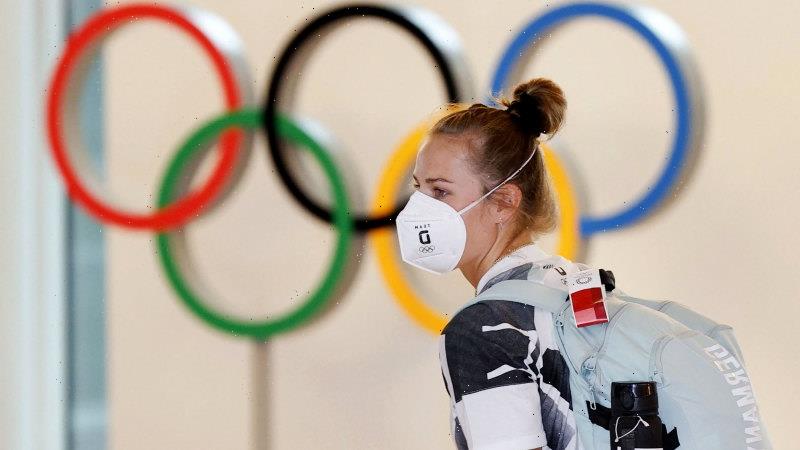For our free coronavirus pandemic coverage, learn more here.
When then Japanese prime minister Shinzo Abe made the initial decision to postpone the 2020 Tokyo Olympics and Paralympics, cases of COVID-19 in Japan were running at a seven-day average of 46 and only one person in the country had died.
By this week, Japan had recorded 14,788 COVID-19 deaths out of a population of 126 million. Twenty-four deaths from the virus were recorded on July 1, and the seven-day average of infections was on an uneasy plateau of about 1500, down from a peak of 7500 in mid-May.
That surge of cases in May, the fourth since the pandemic began and Japan’s worst so far, prompted the capital’s medics to write a letter to the government urging it to cancel the Games and spare their exhausted colleagues. (Games organisers believe 10,000 medical personnel will be needed to ensure the Olympics can run safely.) Even the official media sponsor, the daily Asahi Shimbun, decided it was time for Japan to pull the pin on the event.
If the Olympics were purely about the nation hosting them, this would seem a conclusive case against their going ahead. But they are not just about the host. Cynics will point to the billions of dollars spent on preparations, and the vested interests of the International Olympic Committee and the television networks that have paid the IOC to air the spectacle.
Before last year’s postponement, Australia and Canada had already signalled their objection to a 2020 Games by withdrawing. Only North Korea has taken similar action in 2021, though the ongoing crisis will surely affect other less wealthy nations’ ability to field teams. Last week the locked-down island nation of Samoa decided its home-based weightlifters would not be competing. Their coach, Tuaopepe Jerry Wallwork, described the news as “terrible … very disheartening”.
In a world where so many of us have seen livelihoods and important personal milestones cut off by the pandemic, his words remind us that for more than 15,000 athletes from around the globe and those who love and support them, Tokyo will be the culmination of a lifetime’s work.
The Olympics have always claimed a unique symbolic power. But the Games will also be a mass gathering of people from places including those where the virus is running wild. There are dangers in holding them. The virus has made a mockery of the IOC’s hope that the 2021 Games would be a celebration of the world’s return to normal, so this time, there will be no overseas spectators and only a limited number of Japanese spectators, with the possibility that even they might be banned. Those who do make it into the venues will be barred from cheering. As a live spectacle, the 2021 Games will be radically constrained – “joyless”, in the opinion of some.
The Olympians will also feel the pinch. Fit, young people who would normally expect to combine a rousingly good time with their precious opportunity to compete at the highest level will this year be confined with their support staff in bubbles to prevent mixing with the general population.
As the fallout from a house party in Shellharbour, south of Sydney, involving 13 rugby league players continues, perhaps this is not the best time to put forward sporting heroes as models for the rest of us. Should a similar thoughtless breach of restrictions occur at the Olympics, whether by athletes or the coaches and officials who surround them, the IOC could be faced with something much worse than a public relations problem.
The question for the rest of us is whether we are willing to support the staging of such an event as a symbol of our own determination to keep going in a transformed world? And will we still be able to identify with those who strive to be fastest, highest, strongest?
The Age believes we can. With conditions. A recent article in The New England Journal of Medicine sensibly urged the IOC to improve protection of volunteers, and of transport and hotel employees. It also called for a World Health Organisation emergency committee similar to that convened ahead of the 2016 Rio Games during the Zika virus outbreak.
Yet its authors also hailed the Games as “one of the few events that could connect us at a time of global disconnect”. Let’s celebrate, cautiously, and hope that Tokyo and the IOC can meet the challenge.
Gay Alcorn sends an exclusive newsletter to subscribers each week. Sign up to receive her Note from the Editor.
Most Viewed in Sport
From our partners
Source: Read Full Article
